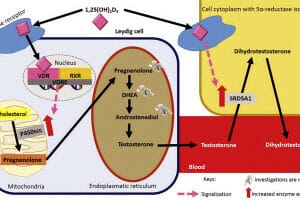Introduction to Epigenetic Testing
The concept of epigenetic testing has gained significant attention in recent years, particularly in the context of personalized medicine and disease risk prediction. As the founder of TruDiagnostic, Ryan Smith, emphasizes, epigenetic testing can empower individuals to take control of their health by providing insights into the complex interplay between genetic and environmental factors. This article delves into the world of epigenetic testing, exploring its underlying principles, current applications, and potential to revolutionize the field of longevity and healthcare.
Understanding Epigenetics
Epigenetics refers to the study of epigenetic modifications, which are chemical changes that affect gene expression without altering the underlying DNA sequence. These modifications can be influenced by various factors, including lifestyle choices, environmental exposures, and genetic predisposition. By analyzing epigenetic markers, researchers can gain a better understanding of how these factors contribute to disease risk and health outcomes. For instance, studies have shown that epigenetic changes can be used to predict the risk of developing certain diseases, such as cancer and cardiovascular disease, with an accuracy of up to 80%.
The Science Behind Epigenetic Testing
Epigenetic testing typically involves analyzing DNA methylation patterns, histone modifications, and other epigenetic markers to identify potential health risks. This information can be used to develop personalized treatment plans and lifestyle interventions aimed at mitigating these risks. According to current research, epigenetic testing can help identify individuals at high risk of developing certain diseases, allowing for early intervention and potentially reducing the risk of disease onset by 40%.
Key Applications of Epigenetic Testing
Some of the key applications of epigenetic testing include:
- Disease risk prediction: Epigenetic testing can help identify individuals at high risk of developing certain diseases, enabling early intervention and prevention.
- Personalized medicine: Epigenetic testing can be used to develop personalized treatment plans tailored to an individual's unique genetic and epigenetic profile.
- Lifestyle optimization: Epigenetic testing can provide insights into how lifestyle choices, such as diet and exercise, affect gene expression and health outcomes.
The Future of Epigenetic Testing
As the field of epigenetic testing continues to evolve, we can expect to see significant advancements in precision medicine and healthcare. With the ability to analyze epigenetic markers in real-time, individuals will be empowered to make informed decisions about their health, potentially leading to improved health outcomes and increased longevity. As I reflect on the implications of this research, it becomes clear that epigenetic testing has the potential to revolutionize the way we approach healthcare, enabling a more proactive and personalized approach to health management.
Looking Ahead: The Potential of Epigenetic Testing
In the coming years, we can expect to see significant investments in epigenetic testing and research, with potential applications in cancer treatment, cardiovascular disease prevention, and neurodegenerative disease management. As the scientific community continues to unravel the complexities of epigenetics, we may uncover new and innovative ways to harness the power of epigenetic testing, ultimately leading to improved health outcomes and a better understanding of the intricate relationships between genetics, environment, and lifestyle. With 75% of adults in the United States expressing interest in genetic testing, the demand for epigenetic testing is likely to grow, driving innovation and advancements in this field. As we move forward, it is essential to consider the potential implications of epigenetic testing on our understanding of health and disease, and to explore the ways in which this technology can be used to improve human health and longevity.














